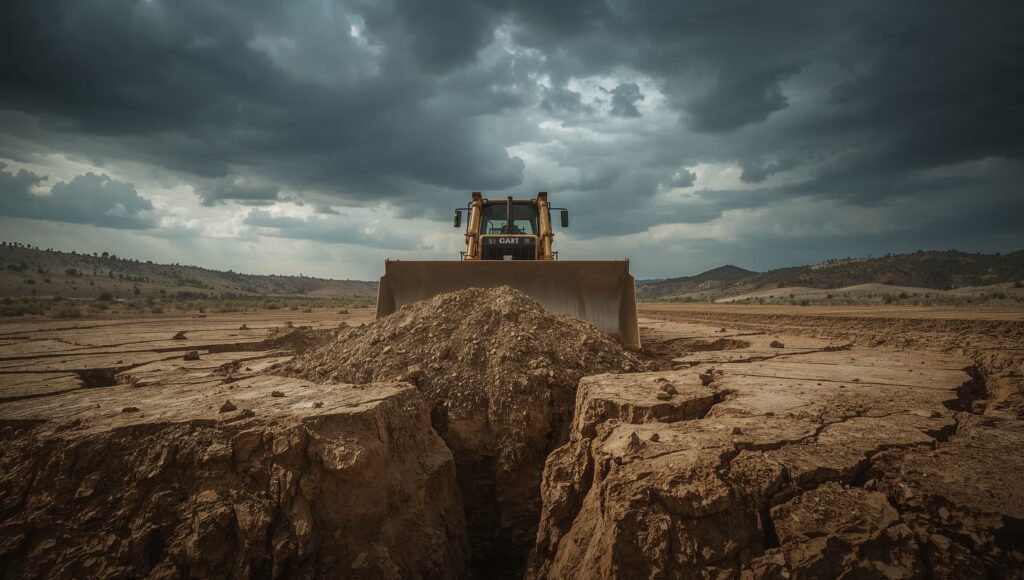‘Burying the Idea of a Palestinian State’: Israel to Approve Controversial E1 Settlement Plan

The E1 plan, frozen for over 20 years, would build over 3,400 new housing units in a strategic area of the occupied West Bank
JERUSALEM – Israel is set to approve a highly controversial settlement project in the occupied West Bank known as the E1 plan, a move that has drawn widespread international condemnation. Far-right Finance Minister Bezalel Smotrich announced on Thursday that the plan, which consists of over 3,400 new homes and has been frozen for decades due to global opposition, will receive formal planning approval.
At a press conference at the planned settlement site, Smotrich declared the construction is Israel’s “answer on the ground” to a recent wave of countries intending to recognize a Palestinian state. “This reality finally buries the idea of a Palestinian state, because there is nothing to recognize and no one to recognize,” he stated. The primary concern for critics is the project’s strategic location, which would connect the large Jewish settlement of Ma’ale Adumim to Jerusalem and, in doing so, split the occupied West Bank in half, making a contiguous, viable Palestinian state “virtually impossible”.
The E1 plan, first proposed in the 1990s, has been on hold for over 20 years following pressure from successive U.S. administrations and other international partners. Israel’s Supreme Planning Council is expected to support the plan when it meets next week. If approved quickly, Smotrich indicated infrastructure work could begin in months, with home construction starting in about a year. Smotrich, a settler himself who holds a junior ministerial post overseeing planning in the occupied territories, also claimed that U.S. President Donald Trump and his ambassador to Israel supported the development. Though there has been no immediate confirmation from the White House.
The announcement was met with a chorus of strong condemnation from the international community. The European Union’s foreign policy chief, Kaja Kallas, urged Israel to halt the plan, stating it “further undermines the two-state solution.” The United Kingdom’s Foreign Secretary, David Lammy, called the move a “flagrant breach of international law” that “must be stopped now.” Germany, Norway, and a United Nations spokesperson echoed these sentiments, affirming that Jewish settlements in occupied territory are illegal under international law, a position codified in U.N. Security Council Resolution 2334.
The U.S. State Department, however, offered a more evasive response, not directly denouncing the plan but stressing the need for “stability in the West Bank.”
Palestinian officials reacted with fury. The Palestinian foreign ministry described the Israeli E1 settlement plan as “an extension of crimes of genocide, displacement, and annexation.” Nabil Abu Rudeineh, a spokesperson for the Palestinian president, called on the United States to pressure Israel to halt settlement building. Hamas stated the plan was part of Israel’s “colonial, extremist” policies and called on Palestinians to confront it.
Within Israel, reactions were sharply divided. The Yesha Council, an umbrella group for settler authorities, celebrated the move as a step toward “the vision of sovereignty.” In contrast, Israeli NGOs issued dire warnings. The advocacy group Peace Now called the plan “deadly for the future of Israel and for any chance of achieving a peaceful two-state solution.” The group Ir Amim warned the project would entrench Israel’s occupation and create an “apartheid reality.”
The move comes amid a dramatic acceleration in settlement growth since the Hamas-led attacks of October 7, 2023. An estimated 700,000 Israeli settlers currently live in about 160 recognized settlements in the West Bank and East Jerusalem.
(For further reading on this topic, consider reports from international bodies like the United Nations and human rights organizations that monitor the region).





